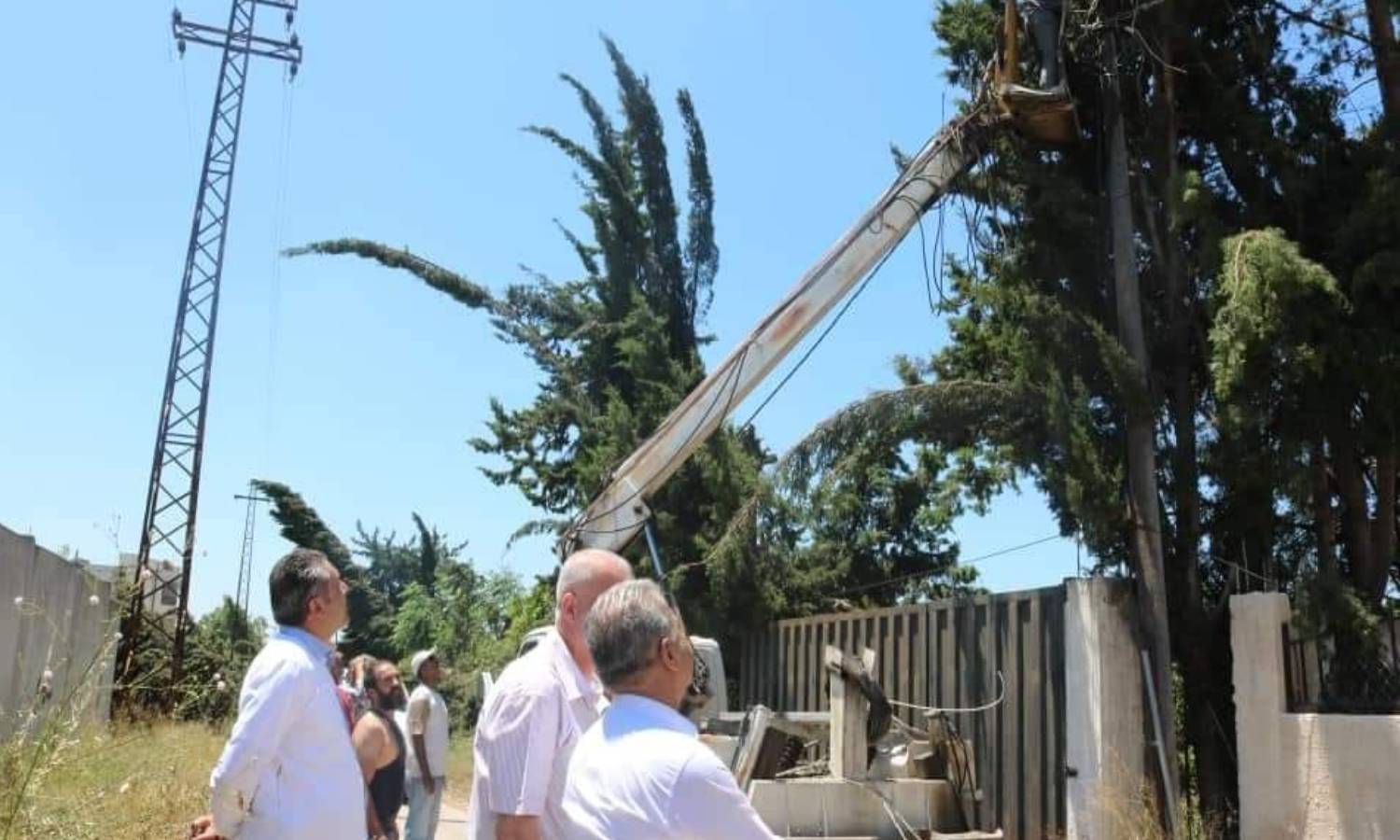



Industrialists in Damascus continue their calls to reduce electricity prices following previous requests this month from Aleppo’s industrialists, considering the energy bill’s increase since the beginning of March as one of the major challenges the industrial sector faces.
Local newspaper Al-Watan reported today on the meeting held by industrialists in the chemical sector last Tuesday, March 26. They unanimously agreed that lowering electricity prices would positively impact the competitiveness of their industries, both locally and regionally, affecting the prices of services and goods provided to citizens as well as products for export.
The president of the Federation of Industrialists and Damascus Chamber of Commerce and its countryside, Ghazwan al-Masri, confirmed to Al-Watan that the high electricity prices have become a major concern for industrialists, describing the current electricity prices in Syria as being higher than the global price.
Al-Masri added that the Federation of Chambers of Industry is working on drafting a letter to the president of the Syrian government about the need to reduce the electricity price per kilowatt to match global prices and those of neighboring countries, similarly to petroleum products like fuel oil, gas, and gasoline, which are priced according to the global rate.
On March 10, Aleppo’s industrialists, in their annual meeting, urged policymakers to address the cumulative industrial problems that clearly affected the production movement in industrial facilities, restricted by obstacles and costs that make their products non-competitive in foreign markets.
The president of the Aleppo Industry Chamber, Fares al-Shihabi, refused to invite any of the ministers to the meeting, especially since a ministerial delegation visited the area last February to find solutions, with little implementation of the presented requests.
Al-Shihabi pointed out in his speech to the local Global website, that the economic situation does not allow inviting them if the results won’t reflect positively on the industry and improve production.
Al-Shihabi believes that providing industrial areas with 24-hour electricity supply is a positive step. However, reducing it under the pretext of the overlapping of industrial and residential areas is unjustified, especially since the Industry Chamber provided what some areas need in terms of electrical transformers.
Regarding the impact of the high electricity prices compared to neighboring countries, al-Shihabi said it would affect the competitiveness of the Syrian product in foreign markets, noting that many Syrian industrialists now operate in other countries after the increase of obstacles in Syria.
He continued that they began exporting their products, which were produced in the industrial facilities of Aleppo, to markets that used to attract locally manufactured goods.
The Ministry of Electricity in the Syrian regime government issued a decision on February 19 to set new electricity tariffs for various subscribers and at different voltages.
According to the decision, the new electricity tariff for commercial purposes at the voltage of 20/0.4 KV is set at 1,200 Syrian pounds per kilowatt-hour consumed during the evening peak, 900 pounds during daylight, and 720 pounds during the evening period, with the decision taking effect from the beginning of March.
For domestic purposes, the new electricity tariff starts at ten pounds for the consumption range of 1 to 600 kilowatt-hours in a single cycle, and 25 pounds for the range of 601 to 1,000 kilowatt-hours.
The tariff for the range of 1,001 to 1,500 decreased to 135 pounds instead of 200, while the tariff for over 2,500 kilowatt-hours reached 1,350 Syrian pounds.
Areas under the regime’s control are witnessing a continuous increase in prices after the latest pay raise on February 5, when the minimum wage for public sector employees became 278,910 Syrian pounds (about $19).
At the time of this report, the exchange rate of the Syrian pound against the dollar was 13,850, according to the S-P Today website, which specializes in monitoring currency movements in Syria.
if you think the article contain wrong information or you have additional details Send Correction